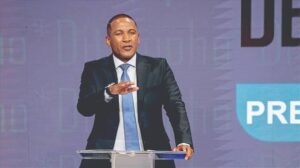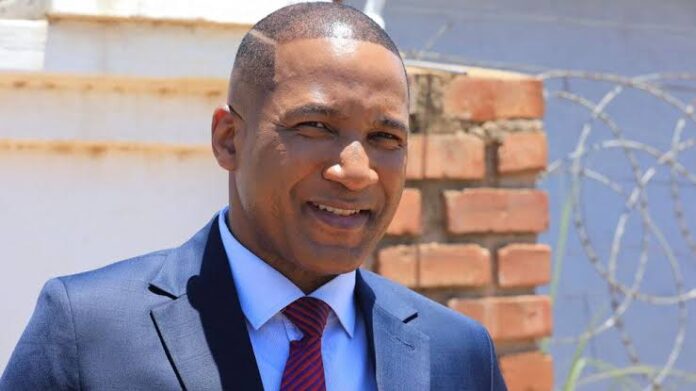Botswana’s newly elected president, Duma Boko, has announced plans to offer temporary work and residence permits to undocumented Zimbabweans residing in the country. This initiative, aimed at integrating Zimbabwean migrants into Botswana’s workforce, marks one of his first major moves after his historic election, unseating the ruling party that governed for 58 years.
In a recent interview with the BBC Africa Daily podcast, Boko acknowledged the significant Zimbabwean community within Botswana, which is the world’s second-largest. Many Zimbabweans have left their country in search of economic stability, with some crossing the porous Botswana-Zimbabwe border. However, these migrants often face daily deportations and limited access to services, creating challenges for both the migrants and the host communities.
Boko, a human rights lawyer and founder of the Umbrella for Democratic Change (UDC) party, highlighted that these workers fill essential roles in sectors like domestic work and farming. “They do jobs that would otherwise not get done,” Boko said, emphasizing that the initiative would address labor shortages and potentially reduce illegal activities associated with the lack of documentation.
The president also aims to turn this migration into a skills-sharing opportunity, explaining that many Zimbabwean migrants possess valuable skills in trades like plumbing and welding. Boko envisions a twin program that allows Zimbabwean workers to legally contribute to Botswana’s economy while transferring their skills to locals. “We can’t stop people with skills from coming in when we don’t have the skills ourselves,” he noted, emphasizing the importance of utilizing Zimbabweans’ expertise to train Botswana’s workforce.
Also, read; CAF Increases Women’s Champions League Prize Money by Over 50%
Boko’s proposal comes amid a backdrop of mixed public sentiment. Last year, a proposal to ease travel between Botswana and Zimbabwe through ID card use instead of passports sparked public resistance, with concerns that it could increase Zimbabwean migration.
Beyond his immigration policies, Boko plans to address Botswana’s economic challenges, particularly unemployment, which affects nearly 30% of the population. The president has pledged to generate 100,000 jobs annually over the next five years and sign new agreements with global diamond giant De Beers, a key revenue source for Botswana’s economy. He also aims to empower youth by providing them with affordable access to finance and markets to encourage entrepreneurship.
Boko’s inauguration is set to take place Friday at the national stadium in Gaborone, which has been declared a public holiday. International dignitaries and local supporters will gather to witness the beginning of his term, marked by bold commitments to both economic revival and inclusive immigration policies.

